Add InstantSearch and Autocomplete to your search experience in just 5 minutes
A good starting point for building a comprehensive search experience is a straightforward app template. When crafting your application’s ...
Senior Product Manager
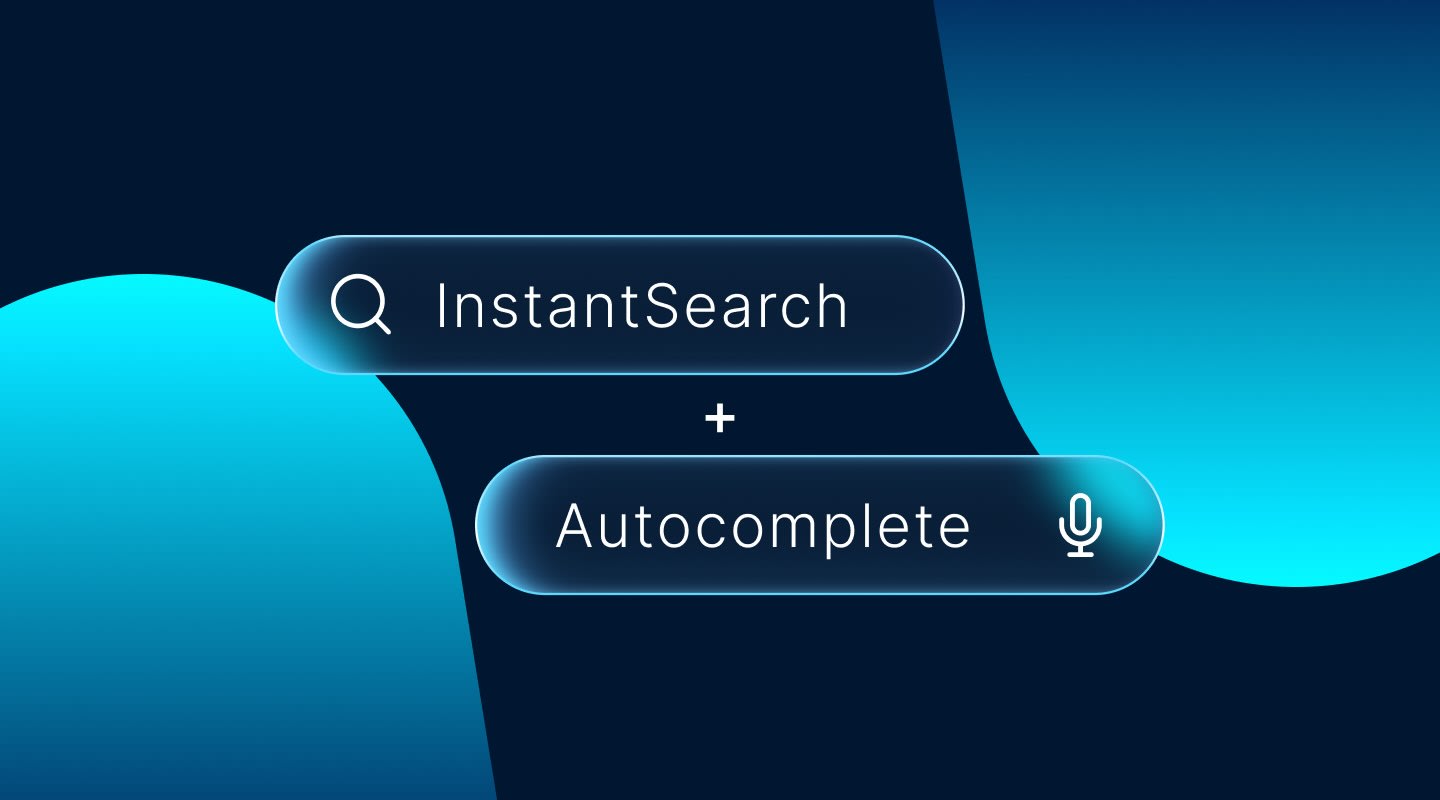
A good starting point for building a comprehensive search experience is a straightforward app template. When crafting your application’s ...
Senior Product Manager
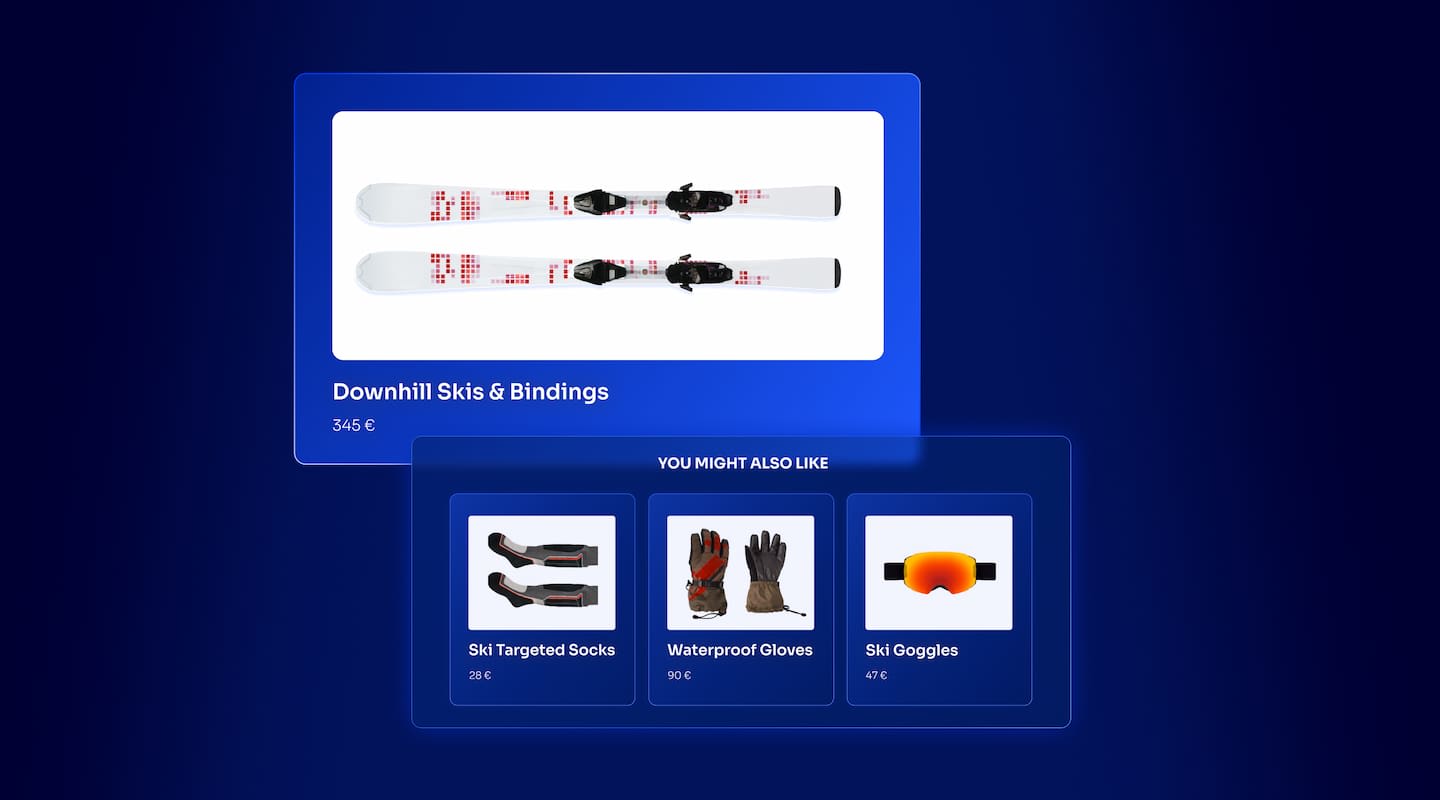
The inviting ecommerce website template that balances bright colors with plenty of white space. The stylized fonts for the headers ...
Search and Discovery writer
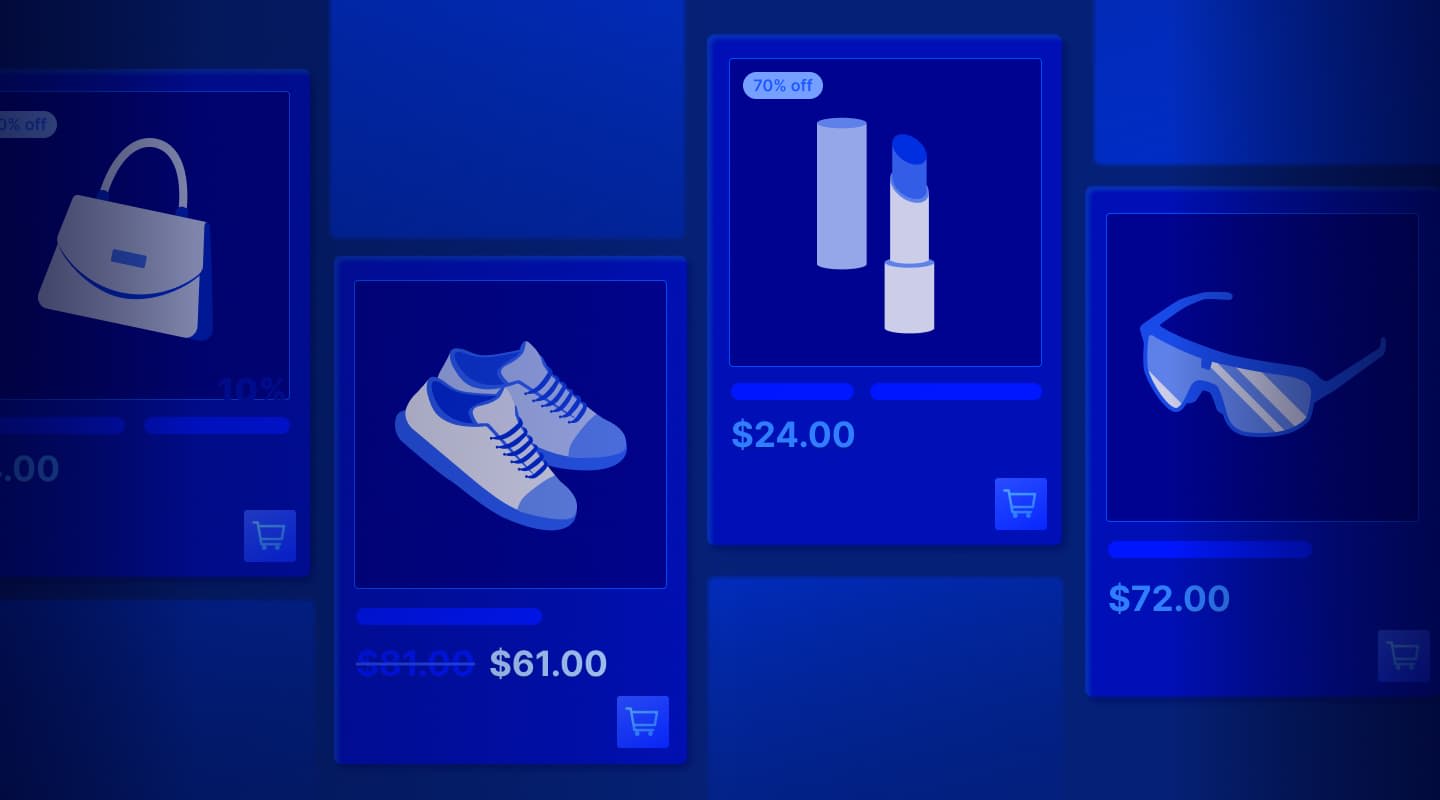
Imagine an online shopping experience designed to reflect your unique consumer needs and preferences — a digital world shaped completely around ...
Senior Digital Marketing Manager, SEO

Winter is here for those in the northern hemisphere, with thoughts drifting toward cozy blankets and mulled wine. But before ...
Sr. Developer Relations Engineer

What if there were a way to persuade shoppers who find your ecommerce site, ultimately making it to a product ...
Senior Digital Marketing Manager, SEO

This year a bunch of our engineers from our Sydney office attended GopherCon AU at University of Technology, Sydney, in ...
David Howden &
James Kozianski

Second only to personalization, conversational commerce has been a hot topic of conversation (pun intended) amongst retailers for the better ...
Principal, Klein4Retail

Algolia’s Recommend complements site search and discovery. As customers browse or search your site, dynamic recommendations encourage customers to ...
Frontend Engineer
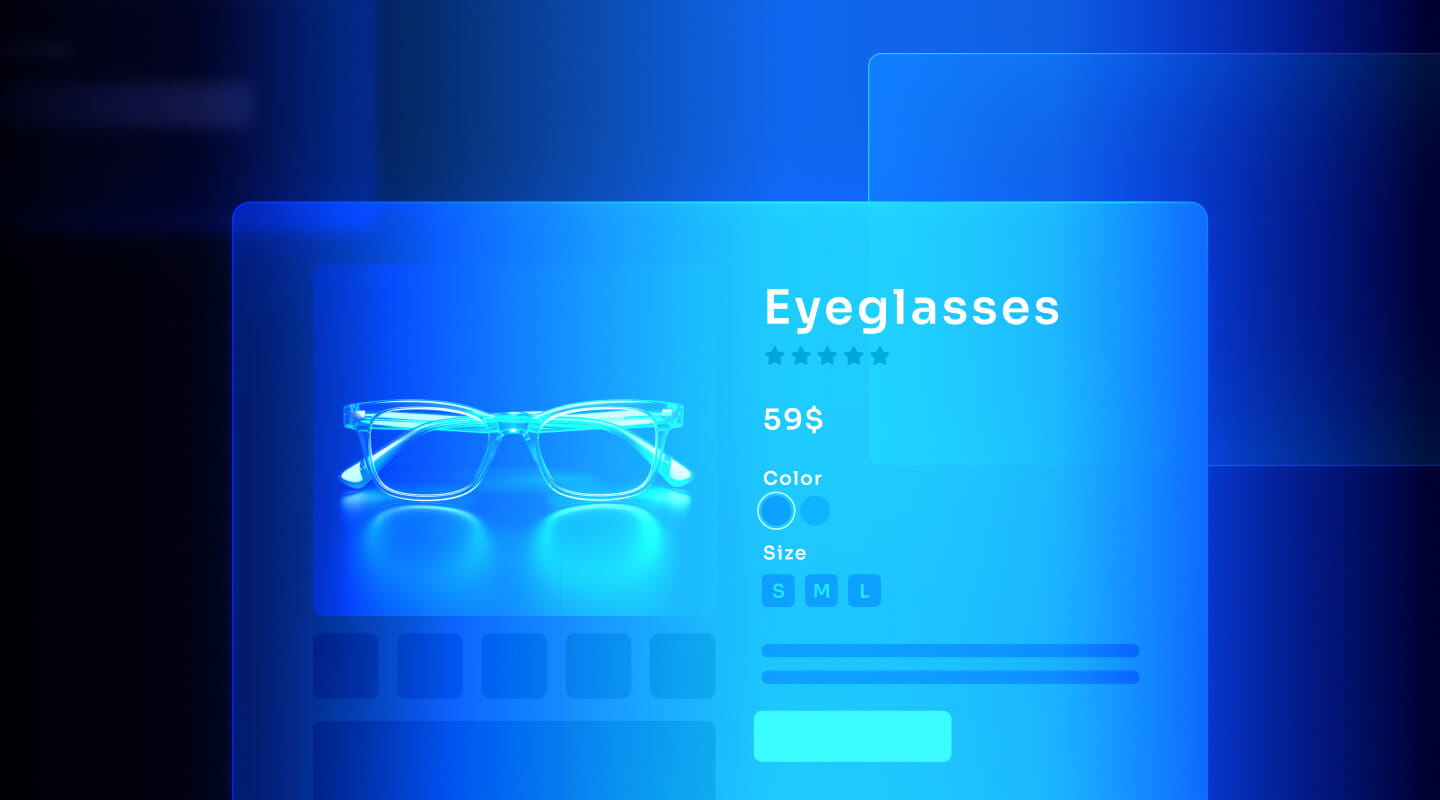
Winter is coming, along with a bunch of houseguests. You want to replace your battered old sofa — after all, the ...
Search and Discovery writer

Search is a very complex problem Search is a complex problem that is hard to customize to a particular use ...
Co-founder & former CTO at Algolia

2%. That’s the average conversion rate for an online store. Unless you’re performing at Amazon’s promoted products ...
Senior Digital Marketing Manager, SEO

What’s a vector database? And how different is it than a regular-old traditional relational database? If you’re ...
Search and Discovery writer

How do you measure the success of a new feature? How do you test the impact? There are different ways ...
Senior Software Engineer

Algolia's advanced search capabilities pair seamlessly with iOS or Android Apps when using FlutterFlow. App development and search design ...
Sr. Developer Relations Engineer

In the midst of the Black Friday shopping frenzy, Algolia soared to new heights, setting new records and delivering an ...
Chief Executive Officer and Board Member at Algolia

When was your last online shopping trip, and how did it go? For consumers, it’s becoming arguably tougher to ...
Senior Digital Marketing Manager, SEO

Have you put your blood, sweat, and tears into perfecting your online store, only to see your conversion rates stuck ...
Senior Digital Marketing Manager, SEO

“Hello, how can I help you today?” This has to be the most tired, but nevertheless tried-and-true ...
Search and Discovery writer
What if there were a way to persuade shoppers who find your ecommerce site, ultimately making it to a product detail page — to make a purchase or two, all without being salesy or schmaltzy?
There is, and it’s straightforward. The secret lies in ensuring that you have top-quality PDPs — the web pages that live a level below your category pages — for your online shoppers to peruse.
These product-level pages are the cornerstone of your ecommerce website, serving as the touchpoint where your site visitors make the critical decision to either purchase or decide — perhaps due to a lack of the right information — to backtrack to the homepage and look for a different product, or worse, jump to a different website altogether.
Yes, PDPs are more than just lower-level pages with product descriptions. They’re pivotal tools that help shape the online shopping customer experience. And that means taking every opportunity to get them right can send your conversion rates soaring.
A product detail page is where a product’s retail “story” is told, with user-friendly visuals, copy, specifications, pricing, and product reviews. And let’s not forget recommendations for related products (if applicable), whether the item is in stock, payment options, return policy, shipping information, FAQs, and all the other details. All optimally presented with a pleasing amount of white space for quick readability.
PDP optimization is the process of enhancing these particular pages, focusing on product page design, content, and functionality in order to improve the user experience and boost conversion. Search engine optimization (SEO) is also a key player in this work, as you can put in place relevant keywords and meta tags to attract potential customers to your product pages.
To make your product listings a starring part of your ecommerce business success, you’ll want to make sure your PDPs exhibit:
Give your product detail page template a clean-looking, well-organized layout, with a logical flow of information. Use headings, subheads, and bullet points to break up the text so that shoppers can easily scan and find information they need to make a buying decision. By decluttering the page and eliminating distractions, you can direct their attention to the most important aspects in terms of getting shoppers to buy: the product images, description, and customer reviews.
Use high-resolution product photos that accurately show the item to your target audience in its best light. Provide multiple views and angles, and let shoppers zoom in for an up-close look. Also consider incorporating images of the product in use, as well as user-generated content such as review-the-product videos, so that shoppers can easily imagine themselves using the item.
Write copy that sells: product descriptions that draw people in by focusing on their real-life needs, as well as highlighting the benefits and value propositions, followed by a clear call to action (CTA). Be sure each product description describes the product to a tee. Why? More than 64% of shoppers have been found to return products that don’t match the way they were described.
To help your ecommerce store shoppers quickly get the pertinent details, place specifications, pricing, and availability information prominently on the page.
To encourage completion of transactions, use a visually striking Add to Cart button and Buy Now button.
Optimizing PDPs for viewing on a computer screen is one thing; optimizing for mobile devices is quite another.
Responsive design for mobile, which encompasses a wide range of screen sizes and resolutions, ensures that a product page layout and its content automatically adjust to fit the screen. Whether an online store shopper is viewing the PDP while in-store shopping or on the go around town, on a large smartphone screen or within the confines of a small tablet, the content must be readable, images must be appropriately sized, and the layout must be visually appealing.
In addition, providing a consistent optimized online shopping experience across devices enhances engagement and can generate higher conversions. In fact, 73.1% of web designers think non-responsive design is a major reason shoppers abandon websites.
Here are a few of the best product page examples. Check out these optimally designed product detail pages:
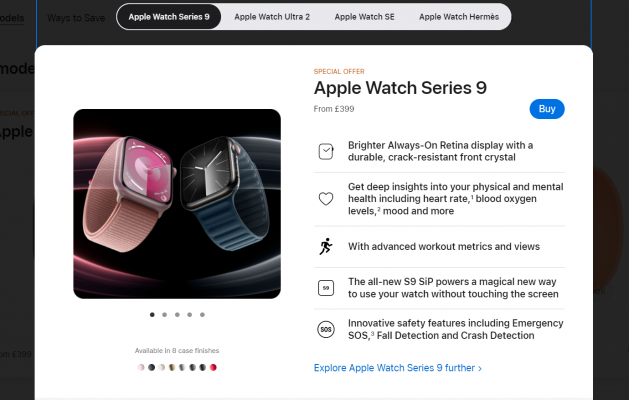
A Shopify study highlights the fact that high-quality images, along with well-written product descriptions, can boost conversion by 30%. Apple is surely aware of this, as it’s known for super-sleek images on its product detail pages. The company uses stunning photos that effectively grab shoppers’ attention and immerse them in the product experience, ultimately increasing their desire to make a purchase.

Retailer REI understands that when it comes to outdoor gear, shoppers need to see all the specifications and usage guidelines up front before they think about hitting Buy. With an optimized product page, the complete information about item materials, sizing, weight, and other parameters lets shoppers comprehensively assess the product suitability for their needs.
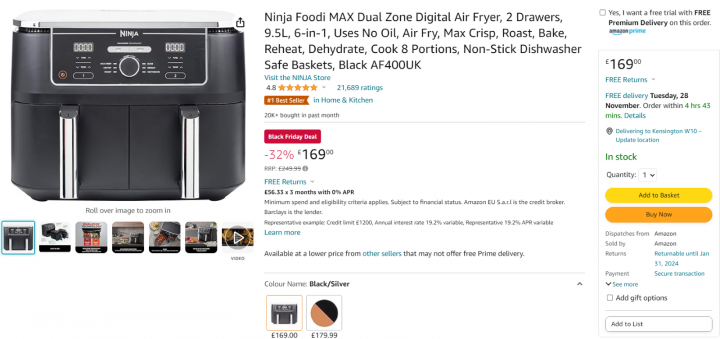
One lesson from Amazon’s PDP format is the power of customer reviews in fostering credibility, building trust, and encouraging purchases. They understand that potential buyers thrive on customer testimonials from real people who’ve explored the product’s features. Candid reviews and star ratings give shoppers this guidance and help customers make informed purchase decisions. Positive reviews serve as social proof; one study found that 46% of shoppers trust user reviews as much as they swear by product recommendations offered up by family members and friends.
Want to improve the effectiveness of your ecommerce PDPs?
Assess the design, layout, content, and functionality of your PDPs for both standard and mobile users. Look for usability issues such as slow loading, broken links, and confusing navigation. Is the product information comprehensive enough and accurate, and are the images appealing? Does everything look right from the top of the page on down?
You’ll also want to monitor your trove of customer reviews, ratings, and comments to understand the pain points and identify areas of improvement.
Upgrade your ecommerce product pages based on what you find, such as by using better images, varying the layout, or varying the placement of key elements such as buttons and customer reviews.
After making some improvements, create multiple variations of your PDPs. Split the traffic to the different variations and measure the performance using metrics such as conversion rate, bounce rate, and time on page.
Use analytics to get a picture of your user interactions, such as click-through rates, scroll depth, and exit rates.
Based on these in-depth findings, make data-driven decisions to update and optimize the content, design, and functionality of your PDPs.
Optimizing your PDP web pages is an admirable goal, but it’s not the only element of a successful ecommerce marketing strategy.
If your target shoppers can’t locate the specific product they need on your ecommerce site, they’ll go somewhere else rather than proceed to the virtual checkout stand.
That means you also need strong search-engine functionality. With modern AI-powered search, you can authoritatively help shoppers instantly reach the PDPs they need and start assessing key features.
And if your PDPs are great product pages, those shoppers will be able to seamlessly move ahead with their purchases, and you may reduce your ecommerce platform’s cart-abandonment rate, among other benefits.
Discover how Algolia’s search API can work alongside your PDP-optimization efforts to enhance your user experience and increase conversion. Schedule a demo or contact our team for info today.
Senior Digital Marketing Manager, SEO
Powered by Algolia Recommend